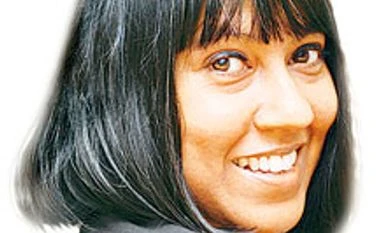There is some poetic justice in the French football team of overwhelming African and Arab origin making it to the finals of the World Cup when players were racially abused by Russian fans earlier this year during a friendly match. Perhaps because the concern had been flagged with the Russian authorities, FIFA’s fears about racist chants as the rainbow teams took to the field proved unexpectedly unfounded as the tournament progressed. Instead, FIFA discovered, it was not racism but the harassment of women that became the most reported concern in this World Cup.
According to FARE, a coalition of European football federations that fights discrimination in football, some 30 locals and female broadcasters have been caught on camera being kissed or groped by passing men. FARE reckons the number of unreported incidents for local women may be significantly higher.
FARE’s report highlights the inconvenient truth about world football: that the conversation about the sport’s relationship with women is long overdue within FIFA. Although football is manifestly no longer a blokes-only game, the sport has a strangely contradictory relationship with women. At one level, you have the outright chauvinistic grouping of WAGs (footballers’ Wives and Girlfriends). Since even moderately successful footballers playing at the top level tend to earn and spend well, they also gravitate towards and attract models and/or actors/singers as WAG consorts (this is true of most sports). This confluence of glamour and money generates its own brand of sexist coverage in the media, aimed clearly at male fans.
At another level, you have the women’s football teams. Every major European club has a women’s team, and they play roughly parallel tournaments, including a World Cup. If the women’s game does not attract a great deal of coverage it is mostly because it is, frankly, not of the same standard as the men’s game (unlike, say, tennis, badminton or hockey). It is unclear whether the lack of coverage accounts for the poorer standard, or the other way around. Anyway, right now, it’s the men’s game that attracts the bulk of the fans – and almost half those fans are women.
What can FIFA do to make the culture of the sport less exclusionary to women? Tennis offers a good example. Women’s matches get the same amount of coverage as men, and women players also earn the same prize money (there’s some grumbling about that for Grand Slams where men play five sets and women don’t, but that’s an issue for another day; the short point is that women say they’re ready to play five sets too).
Even if awarding equal prize money may be premature, mandating more, if not equal coverage to the women’s football matches may have a salutary effect. Officialdom needs to be gender-neutral too. In tennis, women umpires adjudicate in men’s matches as much men umpires preside over women’s matches. Line judges are of both genders irrespective of whether it’s a man or woman on court, and you'll find ball-girls alongside ball-boys courtside. This mingling of the sexes is so common in tennis that no one bothers to comment on it.
In football, on the other hand, women referees, line assistants and coaches (even team owners, come to think of it) are so thin on the ground that they attract huge amounts of attention when they emerge. Last year, for instance, the media went ga-ga over the fact that a woman referee would officiate at – wait for it – the FIFA Under-17 World Cup (for boys) hosted by India. The European football associations have grudgingly begun to introduce women referees into the men’s game – in the early rounds of the FA Cup, an assistant referee at the Champion’s League, in the Bundesliga. But by and large, they're an invisible presence in the administration of the game.
For women who do crash through football's plexiglass ceiling, it’s been a daunting gauntlet to run. I remember the excitement of watching a woman’s linesman officiate at a match at Anfield. She flagged a goal offside and was heaped with abuse of a variety that men refs would never be subject to. The replay confirmed her decision was correct (though that’s not the point). Later, it turned out, two commentators, ex-footballers of the old school (to describe them as charitably as possible), were sacked for making crude comments about her on open mic.
Obviously, it’s not that women are less physically fit or mentally incapable of officiating at matches. And if FIFA is worried that male players will rough up women, well, they only need to watch men’s kabaddi in India. None of those muscular lads dare mess with the tough, saried women umpires.
At each World Cup for the past two decades, FIFA has the teams endorse a message against racism in the sport from the quarter-finals on. Endorsing gender equality in the same way would look daft. But mandating more women in the field and on the touchlines would be a good start. A woman ref at Sunday's final, for instance, would have been a wonderful way to start kicking out the offensive culture of gender discrimination in the beautiful game.
Unlock 30+ premium stories daily hand-picked by our editors, across devices on browser and app.
Pick your 5 favourite companies, get a daily email with all news updates on them.
Full access to our intuitive epaper - clip, save, share articles from any device; newspaper archives from 2006.
Preferential invites to Business Standard events.
Curated newsletters on markets, personal finance, policy & politics, start-ups, technology, and more.
)